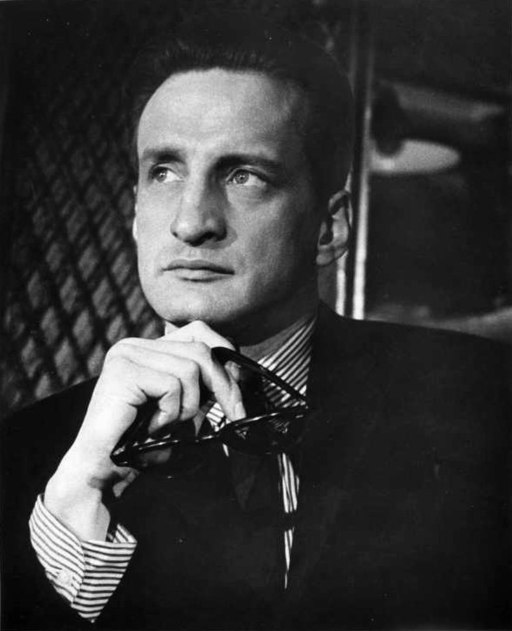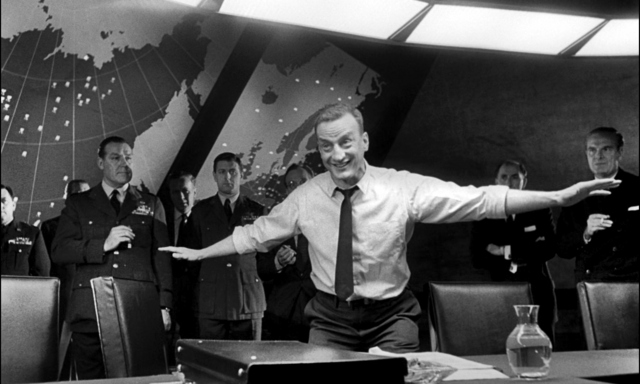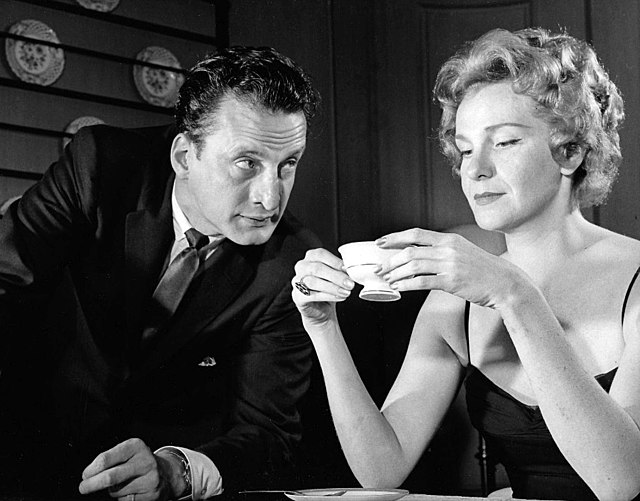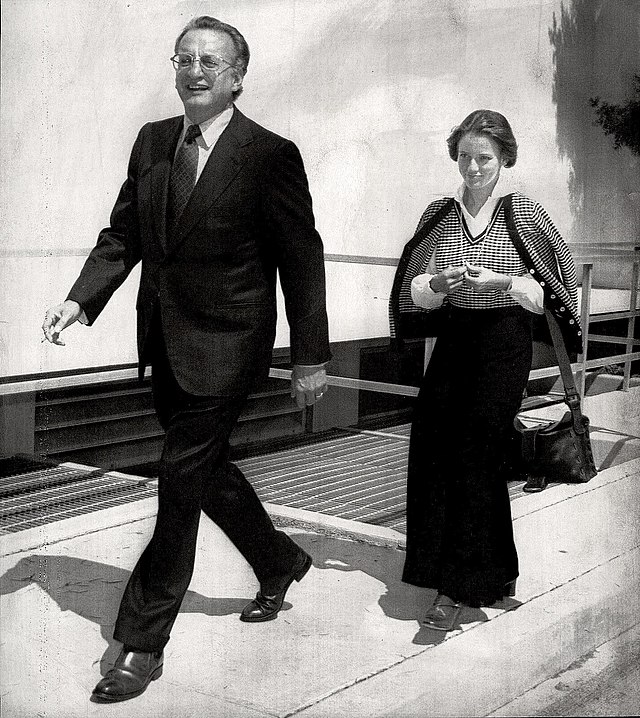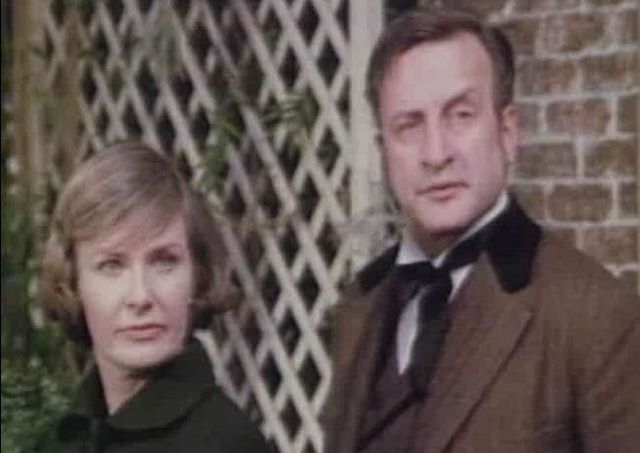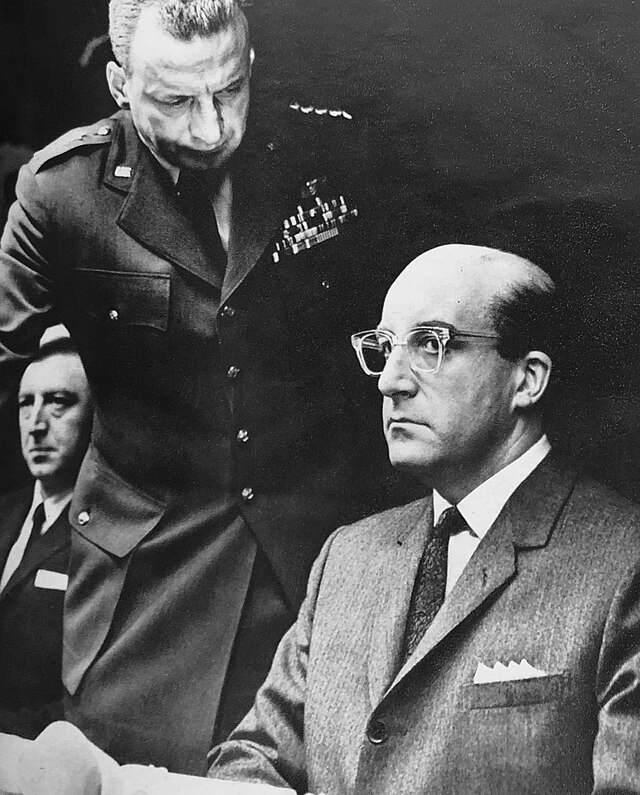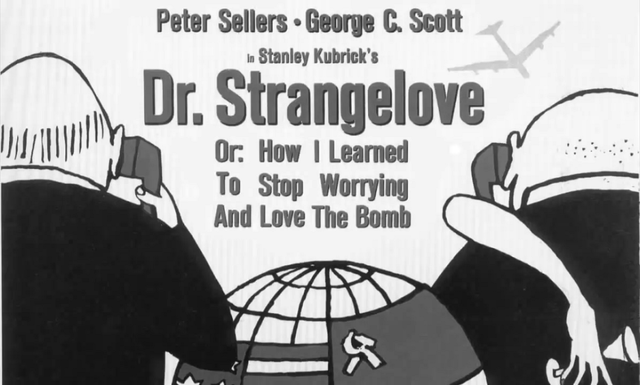George C. Scott
back| Full Name | George Campbell Scott |
| Stage Name | George C. Scott |
| Born | October 18, 1927 |
| Birthplace | Wise, Virginia, USA |
| Died | September 22, 1999 |
| Buried | Cremated; ashes scattered in various locations of his choosing |
| Married to | Carolyn Hughes (m. 1951; div. 1955) - Patricia Reed (m. 1955; div. 1960) - Colleen Dewhurst (m. 1960; div. 1965, remarried 1967; div. 1972) - Trish Van Devere (m. 1972; until his death in 1999) |
| Children | Victoria Scott (with Carolyn Hughes) - Matthew Scott (with Patricia Reed) - Devon Scott (with Colleen Dewhurst) - Alexander Scott (with Colleen Dewhurst) - George D. Scott (adopted with Trish Van Devere) |
| Notable films | Patton (1970) - Dr. Strangelove (1964) - The Hustler (1961) - The Changeling (1980) - A Christmas Carol (1984) - The New Centurions (1972) |
George C. Scott
A Towering Presence in American Cinema
George Campbell Scott was an American actor, director, and producer known for his intense performances and commanding screen presence.
Scott's breakthrough in film came with "Anatomy of a Murder" (1959), where his portrayal of a ruthless prosecutor earned him an Academy Award nomination. This was followed by another Oscar-nominated performance in "The Hustler" (1961). However, it was his role as General George S. Patton in "Patton" (1970) that cemented his place in Hollywood history. Scott famously refused the Academy Award for Best Actor, criticizing the ceremony as a "meat parade."
Related
George C. Scott (1927 – 1999)
Biography and Movie Career
George Campbell Scott was born on October 18, 1927, in Wise, Virginia, a small town nestled in the Appalachian Mountains. His father, George Dewey Scott, worked as an executive at the Buick Motor Company, while his mother, Helena Agnes Scott, passed away when George was only eight years old. This early loss had a profound impact on him, and he was primarily raised by his father. The family moved frequently during George's childhood, which contributed to his feelings of rootlessness.
Military Service and Education
At 17, Scott joined the United States Marine Corps towards the end of World War II. Although he did not see combat, he spent his military years stationed at the Marine Corps Schools in Quantico, Virginia, where he served as an honor guard at Arlington National Cemetery and taught English literature and radio speaking. His time in the Marines instilled in him a sense of discipline and gravitas that would later inform his acting career.
After his discharge in 1949, Scott pursued higher education at the University of Missouri, initially intending to become a journalist. However, he discovered a passion for acting during his college years and switched his focus to drama, immersing himself in the works of Shakespeare and classical theater. He moved to New York City in the early 1950s to pursue a career in acting.
Career Beginnings and Rise to Fame
Scott's early career was marked by a series of small roles in theater and television. He made his Broadway debut in "Comes a Day" in 1958, but it was his performance in the off-Broadway production of "Children of Darkness" that won him an Obie Award and brought him critical attention. His breakthrough in film came with "Anatomy of a Murder" (1959), where he portrayed the ruthless prosecutor Claude Dancer. His performance earned him an Academy Award nomination for Best Supporting Actor and established him as a formidable talent in Hollywood.
Scott continued to build on this success with roles in films like "The Hustler" (1961), where he played the unscrupulous manager Bert Gordon, earning another Oscar nomination. His portrayal of General Buck Turgidson in Stanley Kubrick's "Dr. Strangelove or: How I Learned to Stop Worrying and Love the Bomb" (1964) showcased his ability to balance intensity with dark humor.
Patton and Stardom
The pinnacle of Scott's career came with his portrayal of General George S. Patton in the biographical film "Patton" (1970). His commanding performance won him the Academy Award for Best Actor. However, in a historic move, Scott refused the award, calling the Oscars a "meat parade" and expressing his disdain for the competitive nature of acting awards. Despite this, his performance in "Patton" remains one of the most iconic in cinematic history.
Personal Life and Marriages
Scott's personal life was as dramatic as his professional one. He was married four times and had five children. His first marriage was to Carolyn Hughes from 1951 to 1955, with whom he had a daughter, Victoria. He then married Patricia Reed in 1955, and they had two children, Matthew and Devon. This marriage ended in 1960.
Scott's third marriage was to actress Colleen Dewhurst, whom he married in 1960. They divorced in 1965, remarried in 1967, and divorced again in 1972. They had two sons, Alexander and Campbell. Despite their tumultuous relationship, Scott and Dewhurst remained close until her death in 1991.
His fourth and final marriage was to actress Trish Van Devere, whom he married in 1972. They remained together until his death in 1999. Van Devere and Scott frequently collaborated professionally, appearing together in several films and stage productions.
Passions and Later Career
Beyond acting, Scott had a passion for directing and produced several films and plays throughout his career. He was known for his intensity and dedication to his craft, often immersing himself fully in his roles. This dedication sometimes led to clashes with directors and co-stars, but it also resulted in performances of remarkable depth and power.
In addition to his film work, Scott continued to act in theater and television, earning critical acclaim for roles such as Ebenezer Scrooge in the 1984 television adaptation of "A Christmas Carol." His performance in the horror film "The Changeling" (1980) and the police drama "The New Centurions" (1972) further demonstrated his versatility as an actor.
Death and Legacy
George C. Scott passed away on September 22, 1999, at the age of 71. The cause of death was a ruptured abdominal aortic aneurysm. His death marked the end of a remarkable career that spanned five decades and left an indelible mark on American cinema and theater.
Scott was cremated, and his ashes were scattered in various locations that held personal significance to him. He left behind a legacy of powerful performances and a reputation as one of the most talented and intense actors of his generation. Despite his disdain for the trappings of Hollywood fame, his contributions to the art of acting continue to be celebrated and remembered.
George C. Scott's Iconic Role in Dr. Strangelove:
His Commanding Acting Style:
George C. Scott was renowned for his intense and commanding screen presence. He had a unique ability to dominate the screen, drawing viewers' attention with his powerful physicality and vocal delivery. His performances were often characterized by a simmering intensity, capable of exploding into moments of dramatic outburst or, alternatively, being contained within a tightly controlled exterior. This intensity allowed him to portray complex, larger-than-life characters with authenticity and depth.
Versatility and Range
Scott demonstrated remarkable versatility throughout his career. He seamlessly transitioned between genres, from drama and war films to comedy and horror. His portrayal of General George S. Patton in "Patton" showcased his ability to embody a real historical figure with nuanced layers, capturing both the bravado and vulnerabilities of the iconic general. In contrast, his role as General Buck Turgidson in "Dr. Strangelove" displayed his adeptness at dark comedy, blending absurdity with a sense of realism.
Emotional Depth
Scott was a master of emotional depth, capable of conveying a wide range of emotions with subtlety and precision. His eyes and facial expressions often spoke volumes, conveying inner turmoil, determination, or sorrow without the need for dialogue. This ability to internalize his characters' emotions made his performances profoundly impactful, allowing audiences to connect with his characters on a deeper level.
Vocal Power and Diction
One of Scott's most distinctive features was his powerful, resonant voice. His impeccable diction and commanding tone made his characters' words carry significant weight, whether delivering a passionate speech or engaging in quiet introspection. This vocal prowess was particularly evident in roles like Patton, where his speeches were delivered with a blend of authority and fervor that left a lasting impression.
Commitment to Authenticity
Scott was known for his commitment to authenticity and his meticulous approach to character preparation. He often immersed himself fully in his roles, researching extensively to ensure a truthful portrayal. This dedication to authenticity extended to his refusal to engage in what he saw as the superficial aspects of Hollywood, such as accepting awards. His decision to decline the Oscar for "Patton" was a testament to his belief in the integrity of his craft over the trappings of fame.
Complex Character Portrayals
Scott excelled at portraying morally complex characters, often blurring the lines between heroism and villainy. His characters were rarely one-dimensional; they possessed flaws, contradictions, and a humanity that made them relatable and compelling. In "Hardcore," his portrayal of a religious man searching for his daughter in the seedy underworld showcased his ability to navigate the complexities of a character torn between faith and desperation.
Physicality and Presence
Scott's physicality was a crucial aspect of his acting style. He had a commanding stature and used his body language effectively to convey his characters' inner states. Whether through the rigid posture of a military officer or the weary slouch of a haunted man, Scott's physical presence added an extra layer of believability to his performances.
Intensity in Silence
Scott was equally powerful in moments of silence. He had the rare ability to convey profound thoughts and emotions without uttering a word. This skill was evident in films like "The Changeling," where his haunted expression and subtle movements communicated his character's grief and fear more effectively than any dialogue could.
Method Acting Influence
While not formally a Method actor, Scott's approach shared similarities with Method acting techniques. He often drew from personal experiences and emotions to enrich his performances, creating a sense of realism and immediacy. This approach allowed him to inhabit his characters fully, making each performance unique and deeply personal.
In summary, George C. Scott's acting style was marked by an intense and commanding presence, remarkable versatility, emotional depth, and a commitment to authenticity. His powerful voice, meticulous preparation, and ability to portray complex characters made him one of the most distinguished actors of his generation. His legacy endures through the profound impact of his performances, which continue to resonate with audiences and actors alike.
Awards and Recognition:
Academy Awards (Oscars):
- Nominated: Best Supporting Actor for "Anatomy of a Murder" (1959)
- Nominated: Best Supporting Actor for "The Hustler" (1961)
- Won: Best Actor for "Patton" (1970) - He famously refused the award.
- Nominated: Best Actor for "The Hospital" (1971)
Golden Globe Awards:
- Nominated: Best Supporting Actor for "Anatomy of a Murder" (1960)
- Nominated: Best Supporting Actor for "The Hustler" (1962)
- Won: Best Actor – Motion Picture Drama for "Patton" (1971)
- Nominated: Best Actor – Motion Picture Drama for "The Hospital" (1972)
- Nominated: Best Actor – Motion Picture Drama for "Islands in the Stream" (1978)
- Won: Best Actor – Miniseries or Television Film for "A Christmas Carol" (1985)
- Nominated: Best Actor – Miniseries or Television Film for "The Murders in the Rue Morgue" (1986)
- Nominated: Best Actor – Miniseries or Television Film for "Descendents" (1992)
Primetime Emmy Awards:
- Nominated: Outstanding Single Performance by an Actor in a Leading Role in a Drama for "East Side/West Side" (1964)
- Nominated: Outstanding Single Performance by an Actor in a Leading Role in a Drama for "The Crucible" (1968)
- Won: Outstanding Lead Actor in a Limited Series or a Special for "Arthur Miller's The Price" (1972)
- Nominated: Outstanding Lead Actor in a Limited Series or a Special for "The Last Days of Patton" (1986)
- Nominated: Outstanding Supporting Actor in a Miniseries or a Movie for "12 Angry Men" (1998)
BAFTA Awards:
- Nominated: Best Foreign Actor for "Patton" (1971)
- Nominated: Best Actor for "The Hospital" (1972)
- Nominated: Best Actor for "The Changeling" (1980)
Tony Awards:
- Nominated: Best Actor in a Play for "The Andersonville Trial" (1959)
- Nominated: Best Actor in a Play for "Uncle Vanya" (1973)
National Board of Review:
- Won: Best Actor for "Patton" (1970)
- Won: Best Actor for "They Might Be Giants" (1971)
New York Film Critics Circle Awards:
- Won: Best Actor for "Patton" (1970)
Laurel Awards:
- Nominated: Top Male Dramatic Performance for "Patton" (1971)
- Nominated: Top Male Dramatic Performance for "The Hospital" (1972)
Other Awards and Honors:
- Obie Award: Outstanding Performance for "Children of Darkness" (1959)
- Cannes Film Festival: Best Actor for "The Hospital" (1971)
- Venice Film Festival: Volpi Cup for Best Actor for "The Changeling" (1980)
Memorable Quotes from George C. Scott:
- "Acting is merely the art of keeping a large group of people from coughing."
- "The human spirit is stronger than anything that can happen to it."
- "It took me a long time to get it out of my head that acting was pretending. It isn't. I do not believe in method acting. I believe in the script, the importance of being real."
- "The awards are meaningless to me, and I have always refused to accept any of them."
- "I have nothing against the Oscars. They’re a very prestigious award. But I don’t believe in contests."
- "I became an actor to escape my own personality. Acting is the process of showing other people who you are not."
- "You owe it to yourself to live a life that matters."
- "Patton was the most exciting character I've ever played."
- "My portrayal of Scrooge in 'A Christmas Carol' is the most rewarding of my career."
- "I don't like to be called a star. I'm an actor. Stars have nothing to do with reality."
Trivial Questions:
What is the height of George C. Scott?
George C. Scott's height was approximately 6 feet 1 inch (185 cm).
The Wives of George C. Scott:
Carolyn Hughes (m. 1951; div. 1955)
- Background: Carolyn Hughes was George C. Scott's first wife. There is limited public information available about her background and career.
- Marriage: They married in 1951 when Scott was just starting his acting career.
- Children: They had one daughter, Victoria Scott.
- Divorce: The couple divorced in 1955, after four years of marriage.
Patricia Reed (m. 1955; div. 1960)
- Background: Patricia Reed was an actress who married George C. Scott shortly after his divorce from Carolyn Hughes.
- Marriage: They married in 1955, the same year Scott's first marriage ended.
- Children: They had two children, Matthew Scott and Devon Scott.
- Divorce: Their marriage lasted until 1960. Patricia Reed and Scott's relationship ended in divorce, partly due to the pressures of Scott's rising career and personal issues.
Colleen Dewhurst (m. 1960; div. 1965, remarried 1967; div. 1972)
- Background: Colleen Dewhurst was a renowned Canadian-American actress, known for her powerful stage and screen presence. She had a distinguished career in theater, film, and television, and won two Tony Awards and four Emmy Awards.
- First Marriage: Scott and Dewhurst married in 1960 and divorced in 1965. Their relationship was marked by intense passion and equally intense conflicts.
- Children: They had two sons, Alexander Scott and Campbell Scott, both of whom became involved in the entertainment industry.
- Second Marriage: They remarried in 1967, attempting to rekindle their relationship.
- Final Divorce: Despite their efforts, they divorced again in 1972. They remained close friends and professional collaborators until Dewhurst's death in 1991.
Trish Van Devere (m. 1972; until his death in 1999)
- Background: Trish Van Devere is an American actress known for her work in both film and television. She starred in several movies with Scott, including "The Last Run" and "The Changeling."
- Marriage: They married in 1972, shortly after Scott's final divorce from Colleen Dewhurst.
- Children: They did not have biological children together, but they adopted George's son from a previous relationship, George D. Scott.
- Professional Collaboration: Van Devere and Scott frequently worked together, sharing a deep professional and personal bond. Their collaborative projects included numerous films and stage productions.
- Until His Death: Their marriage lasted until Scott's death in 1999, marking his longest and most stable marriage. Van Devere supported Scott through various personal and professional challenges, including his battles with alcoholism and declining health.
Movies starring George C. Scott:
1958: The Hanging Tree
- Synopsis: A doctor in a small gold rush town heroically helps a woman with amnesia who was injured in a stagecoach robbery.
1959: Anatomy of a Murder
- Synopsis: A courtroom drama where Scott plays the relentless prosecutor Claude Dancer in a complex murder case involving an army lieutenant.
1961: The Hustler
- Synopsis: Scott plays Bert Gordon, a manipulative manager who takes a pool hustler under his wing, leading to a tale of ambition and moral compromise.
1963: The List of Adrian Messenger
- Synopsis: A mystery film in which Scott plays a central role in unraveling the truth behind a series of seemingly accidental deaths.
1964: Dr. Strangelove or: How I Learned to Stop Worrying and Love the Bomb
- Synopsis: A satirical black comedy about the Cold War, where Scott plays General Buck Turgidson, who grapples with a potential nuclear catastrophe.
1966: The Bible: In the Beginning...
- Synopsis: An epic retelling of the first 22 chapters of the Book of Genesis, with Scott portraying Abraham.
1967: The Flim-Flam Man
- Synopsis: A comedy-drama about a charming con artist who partners with a young man, leading to a series of humorous and poignant escapades.
1969: Petulia
- Synopsis: A British-American drama where Scott plays a compassionate doctor entangled in a complex relationship with a young woman in an unhappy marriage.
1970: Patton
- Synopsis: A biographical war film where Scott's portrayal of the controversial and brilliant General George S. Patton earned him an Academy Award.
1971: The Hospital
- Synopsis: A dark comedy about a hospital where Scott's character, Dr. Herbert Bock, grapples with a midlife crisis and systemic failures in the medical establishment.
1971: They Might Be Giants
- Synopsis: Scott plays a retired judge who believes he is Sherlock Holmes, with his psychiatrist, Dr. Watson, helping him solve a mystery.
1972: Rage
- Synopsis: A drama where Scott directs and stars as a rancher seeking justice after a chemical spill poisons his son and livestock.
1972: The New Centurions
- Synopsis: A gritty police drama where Scott portrays a seasoned LAPD officer mentoring a rookie cop.
1973: Oklahoma Crude
- Synopsis: A drama set during the oil boom where Scott plays a drifter helping a woman protect her oil well from a major company.
1974: Bank Shot
- Synopsis: A comedy where Scott plays a clever bank robber who plans to steal an entire bank building.
1975: The Hindenburg
- Synopsis: A historical disaster film about the last flight of the German zeppelin Hindenburg, with Scott playing a fictional colonel investigating a possible sabotage.
1977: Islands in the Stream
- Synopsis: A drama based on Hemingway's novel, where Scott portrays a reclusive artist reconnecting with his estranged sons and facing his past.
1979: Hardcore
- Synopsis: A dramatic thriller where Scott plays a deeply religious man searching for his daughter who has disappeared into the world of pornography.
1980: The Changeling
- Synopsis: A supernatural horror film where Scott's character, Dr. John Russell, is haunted by the ghost of a murdered child in his new home.
1981: Taps
- Synopsis: A military drama about a group of cadets defending their academy from closure, with Scott portraying the academy's revered general.
1984: Firestarter
- Synopsis: A sci-fi horror film based on Stephen King's novel, where Scott plays a government agent tracking a young girl with pyrokinetic abilities.
1984: A Christmas Carol
- Synopsis: A television adaptation of Dickens' classic tale, with Scott delivering a memorable performance as the miserly Ebenezer Scrooge.
1986: The Last Days of Patton
- Synopsis: A TV film sequel to "Patton," focusing on the final years of the general's life, again featuring Scott in the titular role.
1990: The Exorcist III
- Synopsis: A psychological horror film where Scott plays Lieutenant Kinderman, investigating a series of demonic murders linked to the events of the original "Exorcist."
1993: Malice
- Synopsis: A thriller where Scott has a supporting role in a story involving a brilliant but sinister surgeon embroiled in a series of mysterious events.
1994: Tyson
- Synopsis: A television biopic about boxer Mike Tyson, with Scott playing the role of Cus D'Amato, Tyson's mentor and trainer.
1997: Inherit the Wind
- Synopsis: A TV adaptation of the play based on the Scopes Monkey Trial, where Scott portrays the defense attorney, a role inspired by Clarence Darrow.
1999: Gloria
- Synopsis: A crime drama and his final film, where Scott plays a minor but significant role in a story about a woman protecting a boy from the mob.

